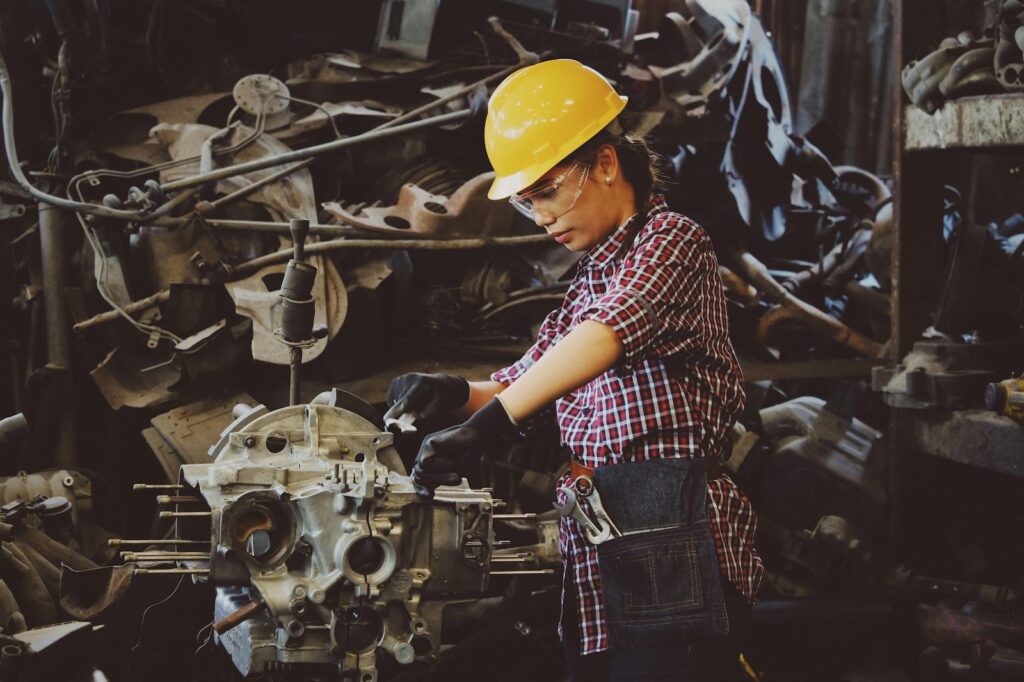Boat enthusiasts realize that keeping a boat’s engine ready to go is fundamental for a charming and comfortable trip. After some time, wear and tear effects can emerge in even the most well-maintained engines, requiring a rebuild.
Early discovery of these warning signs can help repair the problem and minimize downtime. The following are the main signs that your boat engine should be rebuilt:
1. Decreased Performance
A huge loss of power is the most obvious sign that your boat engine should be overhauled. These are warnings that your boat isn’t performing at recently achieved speeds or feels inert and slow. Engine parts that are worn out and no longer operating correctly may cause this performance drop.
2. Excessive Smoke
When you start your engine, a little smoke is typical. However, excessive or peculiar smoke ought to raise a few warnings. Smoke that is white, blue, or dark might show various issues:
- White Smoke: This can imply that a burst head gasket permits coolant or water to enter the combustion chamber.
- Blue Smoke: Frequently, an indication of oil burning could mean that the valve seals or cylinder rings are damaged.
- Black Smoke: This commonly signifies a rich fuel mixture, which proposes issues with the carburetor or fuel injectors.
3. Knocking or Strange Noises
A well-maintained boat engine ought to work quietly and without a hitch. That said, you ought to look carefully into strange noises, like tapping or knocking. These noises may be signs of several underlying issues.
For instance, knocking might indicate worn bearings, which can damage machinery if ignored. Tap noises could indicate problems with the valve train, such as loose or worn rocker arms or camshaft issues.
Grinding or clanking noises may indicate crankshaft or connecting rod issues. Early detection of these noises’ sources can help limit additional damage and ensure that any repairs or rebuilds are finished on schedule.
If you are experiencing these issues, expert services like the Ignition Marine engine rebuilding service can offer the knowledge and abilities to quickly identify and fix the problems.
4. Oil Consumption and Leaks
Quick attention is needed if an engine uses more oil than usual or shows signs of an oil leak. While oil leaks might indicate a gasket failure or damaged parts, excessive oil consumption might indicate worn piston rings or valve guides.
5. Overheating
Overheating is a problematic issue that can hurt your boat’s engine whenever left uncontrolled. Since engines are built to work just within specific temperature ranges, continuous overheating can have detrimental effects.
A failing cooling system, for example, a thermostat or water pump, blocked water channels that impede coolant flow, or worn-out internal parts that can’t disperse heat proficiently, can all prompt overheating.
Expensive repairs, gasket breaks, and engine component deformation can all be caused by overheating. Regular monitoring of the engine temperature and routine cooling system maintenance are necessary to prevent overheating risks.
6. Loss of Compression
Effective combustion requires engine compression. Misfires and poor engine performance can be brought about by a lack of compression in one or more cylinders. A rebuild of the engine could supplant worn-out piston rings, cracked cylinder walls, or malfunctioning valves, which often cause low compression.
7. Metal Shavings in Oil
Finding metal shavings or debris in your engine oil while performing routine maintenance is highly concerning.
These shavings often show internal wear and tear on camshafts, pistons, and bearings. The lubrication system may be hampered by metal fragments in the oil, leading to more damage and engine failure.
Finding the source of the metal particles is fundamental since it frequently focuses on inner parts that should be rebuilt or replaced because they are worn out or damaged. Regular examinations and oil changes can help immediately distinguish these issues and deflect serious harm.
8. High Hour Usage

Like other mechanical systems, boat engines have an end-of-life. If your engine has accumulated many hours, it may be approaching the end of its valuable life. You can guess when a rebuild is expected by performing routine maintenance and recording engine hours.
9. Difficulty Starting
An unpleasant experience when starting your engine usually points to further problems. If starting your engine becomes increasingly troublesome, there might be a gasoline supply issue, such as a malfunctioning fuel pump or clogged gas lines.
Issues with the ignition system, such as broken spark plugs or ignition coils, can cause a hard start. In-engine issues, including broken valves or piston rings, can likewise lessen the effectiveness of starting the engine.
To restore trustworthy engine performance, a thorough inspection by an expert can locate the origin of the starting issues and ascertain whether further repairs or a rebuild are necessary.
Safeguard Your Boat Engine’s Longevity
Eventually, when you know about these wear-and-tear indicators, you will want to address any engine issues before they deteriorate.
You can tell when your boat engine should be rebuilt by watching for performance, smoke levels, odd noises, oil consumption, overheating, compression, metal debris, engine hours, and starting issues.
Prompt action prolongs the engine’s lifespan and guarantees a pleasurable and secure boat ride. Upkeep your engine and averting expensive problems later depend heavily on routine maintenance and early diagnosis.



